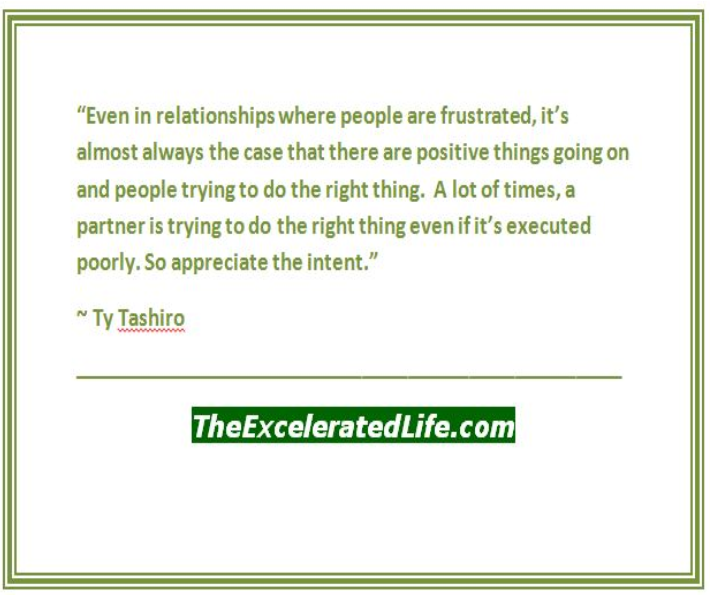“People we care about often tell us about . . . good things that happen to them. How we respond can either build the relationship or undermine it.” ~ Martin Seligman
4 Friends React To Good News
Sally was excited to meet her friends for dinner after work. She had received a promotion that day, for which she had worked and prepared a long time. Over dinner, she excitedly shared her good news about her big promotion. Let’s listen in to hear how her friends responded.
Sue: “That is really wonderful news! I know you have worked hard for this job and it will be a good use of your skills. Tell us all about it. What did your boss say? How did you feel?”
Sarah: “That’s nice. You deserve a promotion.”
Stephanie: “O-h-h. That sounds like a lot of responsibility. Plus you aren’t that good at dealing with changes. Are you sure you can handle this?”
Sharon: “You won’t believe what happened to me today!”
The 4 Responses To Good News
Which of Sally’s friends responded to her in a way that helped strengthen the friendship? Which of the four responses are you most likely to give?
Through research, Shelly Gable and her colleagues have identified four distinct ways that we respond to good news for a friend or loved one.
(1) Active and Constructive – enthusiastic support. You react enthusiastically.
(2) Passive and Constructive – quiet, understated support. You’re happy but generally unresponsive.
(3) Active and Destructive – demeaning the event. You respond by focusing on the negative aspects of the news.
(4) Passive and Destructive – ignoring the event. You are uninterested.
[Gable et al.]
Why is this important?
To create a flourishing romantic relationship or a friendship, you want to feel that your partner or your friend is supportive and you want to experience that support. Gable states: “The results of the present study indicate that feeling that your partner is there for you when things go right and that your partner actually being there for you when things go right play important roles in the health of relationships.” [Gable et al]
When you consider that we share good news with others much of the time, responding actively and constructively plays a major role in creating satisfying relationships. “Indeed,” says Gable, “positive emotional exchanges may serve as a foundation on which stable and satisfying relationships rest.” [Gable et al]
Become An Active And Constructive Responder
Unfortunately, Active / Constructive is not the default response for most of us. It may require some pre-planning and thought before hand. Here are some suggestions.
- Think about a past event when someone shared good news with you. If you didn’t respond actively and constructively, how could you have changed your response? What could you have said?
- Consider some events that you might encounter in the next few days. How can you respond actively and constructively to these events?
- Be sincere. If a gushing, over-the-top response is not “you”, then don’t respond that way now. You can respond actively and constructively without going overboard. Just be aware that interest and enthusiasm are part of the active / constructive response. So be enthusiastic and sincere.
- Practice. Be on the look out for chances to polish up your Active / Constructive response. If you miss a chance, go back over the event in your mind and think of how you could have responded.
- If a full blown Active / Constructive response is too hard for you at the outset, practice this technique — eliminate the “buts”. Chris Peterson calls this Active / Constructive Lite. [Peterson] When someone relates good news, respond to them without using the word “but”. This is a simple way to start yourself on the path to more productive responses.
How Would You Respond?
Suppose your spouse or a close friend said “I’m so excited! The newspaper has asked me to write a weekly column. I’ve been wanting to do this for a long time!”
What is your immediate response? Be honest. Is it Active and Constructive? Passive and Constructive? Active and Destructive? Passive and Destructive?
If your response is not sincerely Active and Constructive (remember, that is generally not our default mode), take some time to craft a response that is. Make it genuine and true to your personality.
Actions
- Look for opportunities and situations where you can respond actively and constructively.
- When you realize you have missed an opportunity, replay the encounter in your head and give an active / constructive response.
- If giving an active / constructive response is difficult, try Chris Peterson’s “but-free” technique. Respond to good news as enthusiastically as you can, without using the word but.
Receive Good News Well
As a rule, we share good news with friends and loved ones more times than we share bad news. By learning to respond supportively, with enthusiasm and sincerity, you can build deep, caring relationships. Learn to respond actively and constructively, not as a “technique” but as a genuine way to show others you care and support them. When things go right, receive good news well. That is embracing the Excelerated Life™!
Excelerated relationships — nurturing ties to other people — is one step in creating your Excelerated Life™, a life of flourishing, of well-being, meaning, and purpose.
Resources:
Gable, S. L., Gonzaga, G. C., & Strachman, A. (2006). Will you be there for me when things go right? Supportive responses to positive event disclosures. Journal of Personality and Social Psychology, 91(5), 904-917. http://coachingtowardhappiness.com/pdf/WillYouBeThereForMeWhenThingsGoRight.pdf
Peterson, Ph.D., Christopher. “A But-Free Day.” Psychology Today. Psychology Today, 12 Oct. 2011. Web. 11 Oct. 2018. http://www.psychologytoday.com/blog/the-good-life/200905/free-day
Seligman, Ph.D., Martin E. P. Flourish. New York: Free Press, 2011



9 Replies to “When Things Go Right: The Power Of Positive Responses”